
I Want to Go Back: Second Plane Problems
By: Maureen Clifford, Executive Director, NOVA Montessori
Maria Montessori described human development as a series of Four Planes:
Infancy: 0-6
Childhood: 6-12
Adolescence: 12-18
Maturity: 18-24
She specifically saw them as planes, identifying commonalties to each, on which children can move around on different courses as opposed to linear paths that all children experience the same way. She visualized them as triangular planes with common accelerations and decelerations in development.
Here’s a snapshot!
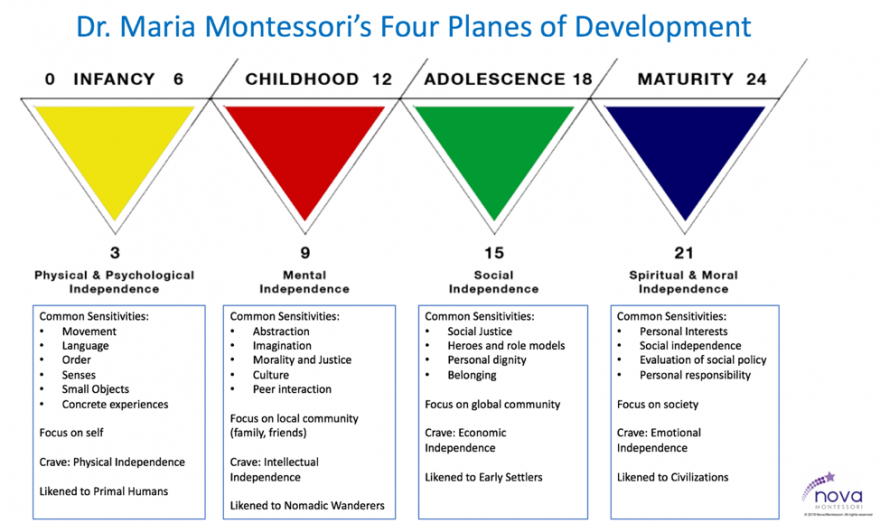
I know the First Plane of Development well. My Montessori certification (Infant/Toddler and Early Childhood) span the entire plane. I have worked with this age group for two decades. Two of my three children are on the First Plane and the other just completed it.
It’s that child that I want to talk to about here. The one, who in Montessori lingo, “planed.” This means she moved from one plane to the next. A few weeks away from turning 7, she has firmly and completely exited the First Plane. And Momma wants to go back!!! Long live the First Plane of Development!!
I jest… Sort of.
Watching my own child develop and grow is exciting and makes my heart glow, but some days my Second Plane child seems so very different from the sweet, innocent First Planer she used to be. Especially with two First Plane siblings toddling around. With the oldest, I have an (almost) entirely new child. One I sometimes don’t recognize.
She is a child who has clearly left the First Plane behind, but is not 100% of the Second Plane, at least the Second Plane Dr. Montessori describes as “a period of growth unaccompanied by other change. The child is calm and happy. Mentally, he is in a state of health, strength and assured stability.” (The Absorbent Mind, p. 18).
Not my kid!
To be fair, she is kind, confident, articulate, independent, capable, and so very curious about the world. She has lost the wonder of her infant and toddler years, instead exhibiting a curiosity that is amazingly analytical and comparative.
On the other hand, she is also suddenly emotional, defiant, argumentative, and at times downright rude. Sometimes she wants to crawl into my lap with her gangly legs hanging almost to the floor with mine. Every night she begs for more goodnight “kissies” than her three year old sister. But she has also outright tried to “lawyer” me and rolls her eyes as if I am the most clueless human to ever roam the Earth on more occasions than I care to admit.
So what gives? Am I a terrible parent? Is something wrong with her? Am I neglecting her mental health? Is elementary school too demanding? Has she outpaced my Montessori training? What am I to do?
Well, I’ve done what every neurotic, Montessori obsessed, Millennial teacher/parent is wont to do: research!! I’ve been researching the heck out of this! Talk to the pediatrician? Check. Talk to other parents? Check. Comb through Baby Center articles? Check. Pour over Pathways developmental checklists? Check. Talk to other Montessorians? Check! Check! Check!
And guess what they all say? This is normal development!
So, then what is Maria talking about in that quote up there? Where is this Golden Age that I have heard 7 so often described as? Should I expect a miraculous turn of events on her 7th birthday?
Apparently, it’s coming! But first, the rebirth!
I hadn’t remembered all of Maria’s words. The part where she says, “Development is a series of rebirths.” And since we are all parents, we know that birth, while miraculous and beautiful, can be messy, scary, and hard. Remember all the emotions and adjustments following birth? It’s the same now as children are born to the next plane. Just like the infant would probably prefer to crawl back up into the womb, there are times newly reborn Second Plane child would like to scurry back to the First Plane (parents too!).
But, we must continue forward. As much as we may want to go back, we can’t.
So, what can you do in the meantime? What helps me accept this new phase as I grieve for what are now the relative easier, less complicated times of toddlerhood and the innocence of preschool? What calms my mind as it races with a mother’s worry in the middle of the night?
The very same thing that calms me when our one year old wants to climb steps or our three-year-old demands 20 minutes to put her own socks on “by herself!” The same comfort I turned to during the First Plane: The words of Maria Montessori!
I couldn’t hope to contain all her wisdom here, but this is just a smattering of what I go back to and what she has to say on the Second Plane:
- “During this period the personality undergoes great changes” (The Absorbent Mind, p. 18)
- “I have found that in his development, the child passes through certain phases, each of which has its own particular needs. The characteristics of each are so different that the passages from one phase to the other has been described by certain psychologists as ‘rebirths’.” (Four Planes of Education, p. 1)
- “We are confronted with a considerable development of consciousness that has already taken place, but now that consciousness is thrown outwards with a special direction, intelligence being extroverted, and there is an unusual demand on the part of the child to know the reasons for things.” (To Educate the Human Potential, p. 3)
- “A second side of education at this age concerns the child’s exploration of the moral field, discrimination between good and evil. He no longer is receptive, absorbing impressions with ease, but wants to understand for himself, not content with accepting mere facts. As moral activity develops he wants to use his own judgment, which often will be quite different from that of his teachers.”
- “An inner change has taken place, but nature is quite logical in arousing now in the child not only a hunger for knowledge and understanding, but a claim to mental independence, a desire to distinguish good from evil by his own powers, and to resent limitation by arbitrary authority. In the field of morality, the child now stands in need of his own inner light.” (To Educate the Human Potential, p. 4)
- “Our experience with children in elementary schools has shown us that the age between six and twelve years is a period of life during which the elements of all sciences should be given. It is a period that, psychologically, is especially sensitive and might be called the “sensitive period of culture” during which the abstract plane of the human mind is organized.” (From Childhood to Adolescence, p. 85)
Now, those quotes sound a bit more like my kid! She is going out into the world, she tests me, she wants fairness in everything but she must process and understand it all on her own. The best I can do it follow my own advice, which I have known to be true for years. Oh the blinders we wear with our own children!
So often over the past 13 years, I have counseled parents who grappled with the transition to elementary school, thinking their child regressed, or their school choice wasn’t correct, or that they are bad parents. Now I’m on the other side, seeing the manifestation of my daughter’s childhood that I desperately want to make perfect for her, but know I can’t.
I remind myself frequently that our six-year-old is much like a baby entering a new world only this world is childhood, a world I have less control and influence over. What was independent, advanced and strong in the First Plane is now immature, freshman-like in the Second Plane because as is commonly said, all things are relative. A first-year elementary student is grown up relative to the First Plane of Development, but they are babies on the Second Plane. I remind myself to be patient. I force myself to trust our daughter, our own choices for her care and development, and the professionals around her. I support her, but simultaneously strive to give her the freedom and tools to figure out her own problems.
And when all else fails, I pour a big ol’ glass of Cab Sav and thank the good Lord I have another 6 years until the next “rebirth,” also known as puberty!

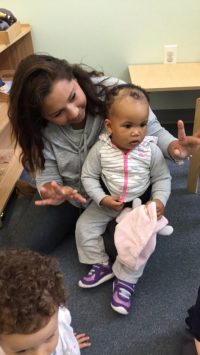 Ms. Nikki
Ms. Nikki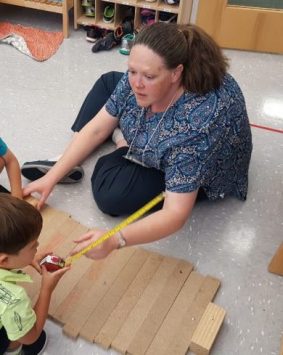
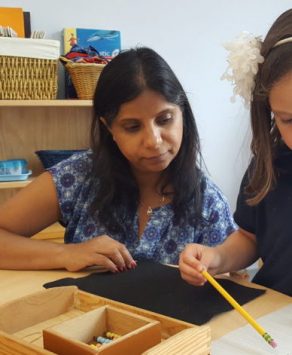
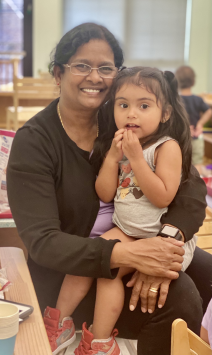
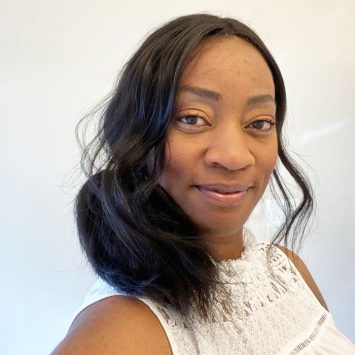
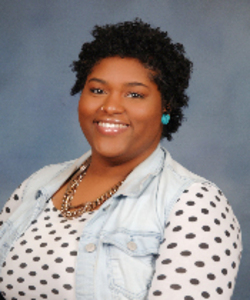
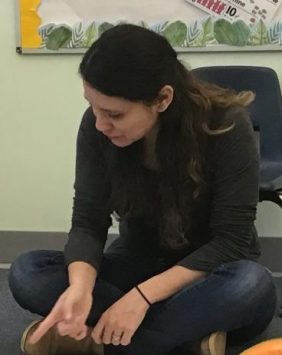
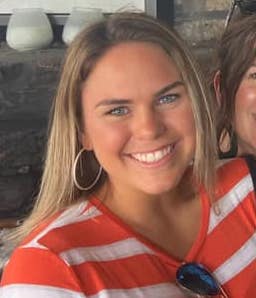
Comments are closed here.